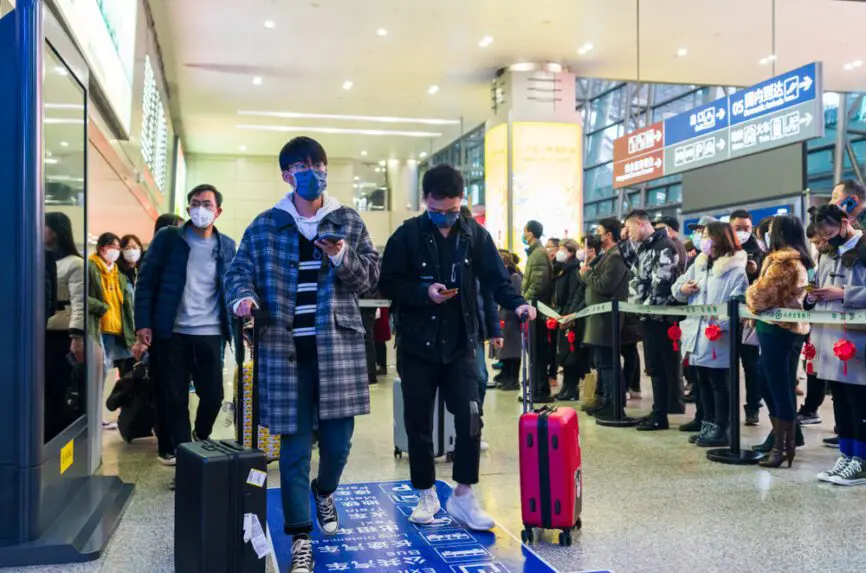Bioethics Forum Essay
A Warning from China: After the Zero Covid Policy
A massive wave of Covid infections has begun now that China has ended much of its zero Covid policy. Many cities no longer require people to have a negative test to enter public places such as entertainment venues, shopping malls, restaurants, and public transportation. Many people who live far from their families have not been back home for three years, and they are eager to visit. Intercity travel will surge dramatically, causing the virus to spread.
Sixty percent of the China’s population of 1.4 billion people could be infected during this Covid surge, which is expected to peak around the New Year festival in January, and eventually 80% to 90% of the population could be infected, according to an estimate by Dr. Feng Zijian, former deputy director of China’s Center for Disease Control and Prevention. The remarks, at a lecture at Tsinghua University on December 7, shocked people throughout China.
There is a Chinese saying, “We can’t have both fish and bear’s paw.” (It means, “You can’t have your cake and eat it too.”) However, this time we need to have fish and bear’s paw. The ethical imperative facing Chinese people and our government is to find a way to both fulfill people’s urgent desire to lift Covid restrictions (and restore normal life and the economy) and to minimize the resulting harms. Three steps ought to be taken to achieve this ethical imperative:
Minimize the peak surge of infections. Actions to reduce infections, severe cases, and deaths should include continuing to require nuclei acid (P.C.R.) testing for some people, including employees in high-risk positions, such as nursing homes, medical institutions, kindergartens, and primary and secondary schools. Testing should also be required for people in high-risk zones, areas that have had at least one Covid infection within the last five days. Wearing masks remains mandatory in nursing homes, kindergartens, and primary and secondary schools, but it should be encouraged in supermarkets and other public places.
Develop a resource allocation plan. Health institutions are stockpiling respirators, drugs, trained medical personnel, hospital beds, and other resources in advance of the anticipated surge in Covid cases. These resources need to be allocated fairly to ensure that they get to the patients who need them. Only severe cases ought to be treated in hospitals in isolation. Mild and asymptomatic cases should be treated at home when possible. And people should have access to medications to manage their symptoms, such as fever reducers, cough medicine, and decongestants. Local doctors and nurses should be trained to care for people who can’t manage their symptoms on their own and to recognize when patients should be transferred to a hospital.
Increase vaccination among older people. While gradually lifting restrictions, we must increase vaccination of people over age 60. There are 267 million people over 60 in mainland China. Only 69% of them are fully vaccinated (with three doses of the vaccine available in China, which is recommended by the World Health Organization). Just 40% of people 80 and older have been fully vaccinated. Steps to increase vaccination should include setting up temporary vaccination sites and using mobile vaccination vans to bring vaccines where people live. Public messaging is needed to help persuade older people to get vaccinated.
The Chinese government at all levels should implement Covid policies that comply with bioethical principles of beneficence and nonmaleficence, respect persons, and justice. These three steps are a start.
Renzong Qiu is a professor at Institute of Philosophy in the Chinese Academy of Social Sciences in Beijing and a Hastings Center fellow.













